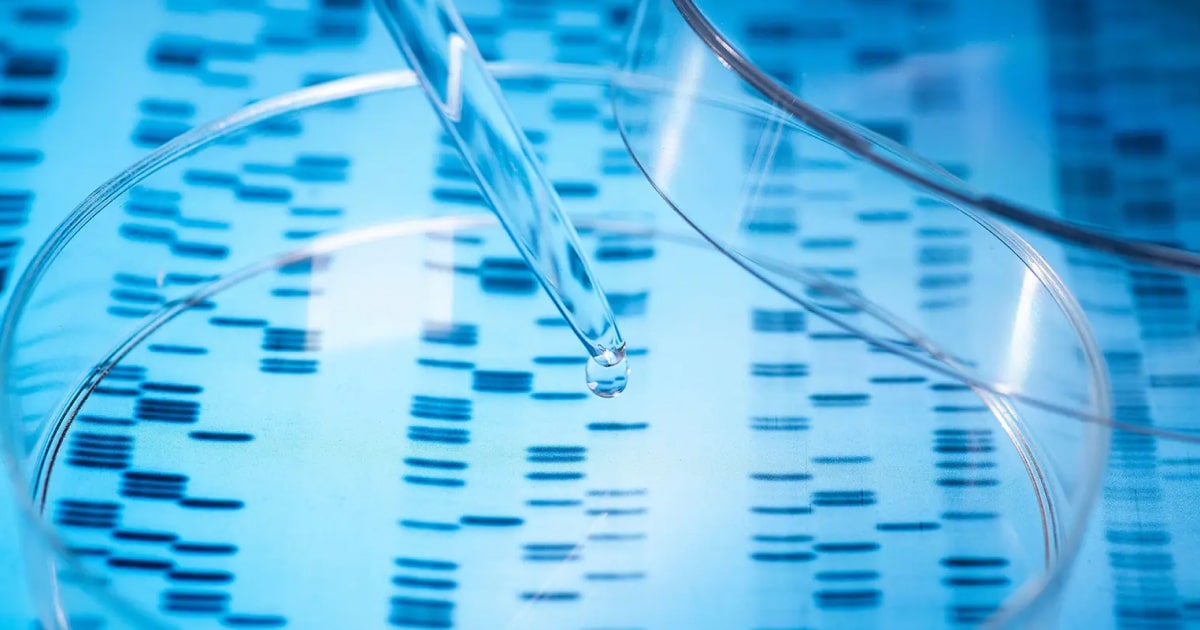
Expert Reviewed By: Dr. Brandon Colby MD
Nonalcoholic fatty liver disease (NAFLD) is a common and often silent condition that affects millions of people worldwide. It occurs when fat accumulates in the liver of individuals who consume little or no alcohol. If left untreated, NAFLD can progress to more severe liver diseases such as nonalcoholic steatohepatitis (NASH), cirrhosis, and even liver cancer. Understanding, diagnosing, and using genetic testing for NAFLD susceptibility is crucial for early detection, prevention, and treatment of this potentially life-threatening condition.
Understanding Nonalcoholic Fatty Liver Disease
NAFLD is a complex and multifactorial disease that is influenced by genetics, lifestyle, and environmental factors. The exact cause of NAFLD is still not fully understood, but it is believed to involve a combination of insulin resistance, oxidative stress, and inflammation. Risk factors for developing NAFLD include obesity, type 2 diabetes, high cholesterol, and metabolic syndrome. However, not everyone with these risk factors will develop NAFLD, and some people without any risk factors may still develop the condition, suggesting a genetic component to the disease.
Diagnosing Nonalcoholic Fatty Liver Disease
Diagnosing NAFLD can be challenging, as many individuals with the condition do not exhibit any symptoms. In some cases, NAFLD may be discovered incidentally during routine blood tests or imaging studies for unrelated conditions. To confirm a diagnosis of NAFLD, doctors may use a combination of blood tests, imaging studies (such as ultrasound, CT scan, or MRI), and liver biopsy. It is essential to rule out other causes of liver disease, such as viral hepatitis, alcohol-induced liver disease, and autoimmune liver disease, before confirming a diagnosis of NAFLD.
Genetic Testing for Nonalcoholic Fatty Liver Disease Susceptibility
As NAFLD has a genetic component, identifying specific genetic factors that contribute to the development and progression of the disease can help in early detection, prevention, and treatment. Genetic testing for NAFLD susceptibility involves analyzing an individual's DNA to identify specific genetic variations that are associated with an increased risk of developing the condition.
Uses of Genetic Testing in NAFLD
Genetic testing for NAFLD susceptibility can be helpful in several ways:
- Identifying at-risk individuals: By identifying people who carry specific genetic variations associated with NAFLD, doctors can provide targeted interventions, such as lifestyle modifications and close monitoring, to prevent or delay the onset of the disease.
- Personalizing treatment: Genetic testing can help doctors tailor treatment plans for individuals with NAFLD based on their specific genetic makeup. This personalized approach can lead to more effective and targeted therapies, improving patient outcomes.
- Understanding disease progression: Genetic testing can also provide insights into the factors that contribute to the progression of NAFLD to more severe liver diseases, such as NASH and cirrhosis. This information can help doctors develop strategies to slow or halt disease progression in at-risk individuals.
Limitations and Considerations of Genetic Testing for NAFLD
While genetic testing for NAFLD susceptibility can provide valuable information, it is essential to consider its limitations and ethical implications. Genetic testing can only identify an increased risk of developing the condition; it cannot predict with certainty whether an individual will develop NAFLD. Additionally, genetic testing results can have psychological and emotional impacts on individuals and their families, as well as potential implications for insurance coverage and employment.
It is crucial to consult with a healthcare professional, such as a genetic counselor, before undergoing genetic testing for NAFLD susceptibility. Genetic counselors can help individuals understand the benefits, limitations, and implications of genetic testing and guide them in making informed decisions about their health.
Conclusion
Understanding, diagnosing, and using genetic testing for nonalcoholic fatty liver disease susceptibility is an essential aspect of managing and preventing this common and potentially life-threatening condition. By identifying at-risk individuals and personalizing treatment plans, healthcare professionals can help mitigate the impact of NAFLD and improve patient outcomes. However, it is crucial to consider the limitations and ethical implications of genetic testing and consult with a genetic counselor before making any decisions about testing and treatment.
About The Expert Reviewer
Dr. Brandon Colby MD is a US physician specializing in the personalized prevention of disease through the use of genomic technologies. He’s an expert in genetic testing, genetic analysis, and precision medicine. Dr. Colby is also the Founder of and the author of Outsmart Your Genes.
Dr. Colby holds an MD from the Mount Sinai School of Medicine, an MBA from Stanford University’s Graduate School of Business, and a degree in Genetics with Honors from the University of Michigan. He is an Affiliate Specialist of the American College of Medical Genetics and Genomics (ACMG), an Associate of the American College of Preventive Medicine (ACPM), and a member of the National Society of Genetic Counselors (NSGC)